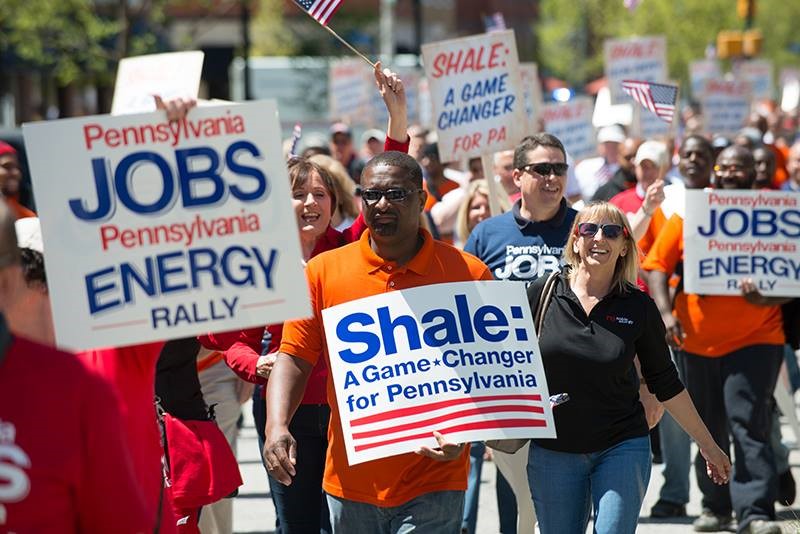With President Biden making a pit stop in Pittsburgh to tout the 2021 federal infrastructure bill, his administration still does not acknowledge the need for more natural gas infrastructure to facilitate enhanced development and better serve markets both here and abroad. Indeed, his recent actions aimed at lowering energy prices fail to recognize the fundamental benefits of American natural gas production and use that are key to a more reliable, affordable and sustainable energy future in this country.
Policymakers have been quick to place blame on Russia’s invasion of the Ukraine as the cause of the energy crisis unfolding across the globe, but it’s important to note this problem predates today’s current economic climate. For years, anti-domestic energy policies at the municipal, state, and federal levels have blocked or unnecessarily delayed critical infrastructure projects and instead advanced policies constraining homegrown energy and thereby our ability to respond to domestic and global needs in times of crisis.
President Biden has been focused on a singular band-aid fix to domestic energy prices: depleting the nation’s Strategic Petroleum Reserve in hopes of lowering costs in advance of the impending elections. But any real solution must provide meaningful long-term relief and stability, such as addressing burdensome permitting timeframes, reducing investment-killing tax provisions, accelerating critical infrastructure projects, and advancing LNG production for domestic and foreign markets in need of long-term, reliable energy solutions. Each of these solutions can be addressed by the President and his Administration, and each would help our economy while continuing to ensure domestic energy production is done in a manner that protects our shared natural resources.
“We need proper investing in the oil and gas complex. Investing in the oil and gas complex is good for reducing CO2,” JP Morgan Chase CEO, Jamie Dimon said. “We need to have proper rules and regulations and government policy to have an effective transition to reduce CO2, keeping energy secure.”
Political and regulatory hurdles make it difficult to grow production and move it to regions with increased demand. Blocking pipelines is impeding New England’s ability to reduce costs and increase fuel supplies heading into winter, while shortchanging property owners and driving capital investment – and jobs – out of the Appalachian Basin. Afterall, the pipelines, power plants, and clean manufacturing facilities – constructed by the skilled men and women in the building trades – are essential to a cleaner and more energy secure future.
“Renewables will never be able to replace our fossil fuels, it’s a no-brainer…You cannot even conceive a windmill or a solar panel without fossil fuels,” Shawn Steffee, Business Manager of Pittsburgh’s Boilermakers Local 154 said.
“The reality is, [fossil fuel] is what runs the world today. It’s going to run the world tomorrow and five years from now, 10 years from now, 20 years from now,” Chevron CEO Mike Wirth recently told to the Financial Times. Despite this reality, “the administration has a very clear agenda…to make it more difficult for our industry to deliver energy to our customers,” he continued.
Furthermore, shortsighted policies that aim to reduce natural gas consumption – such as gas hookup bans, restricting development, and electrification mandates – are contributing to the high price environment Americans are currently experiencing. Additionally, as it has been witnessed, “fracking bans” do nothing to deter consumption habits and do everything to diminish the strength of America’s energy producers.
“As the largest natural gas producing region, with the greenest environmental profile in the country, our three states -Pennsylvania, Ohio and West Virginia- have the tools to solve global energy woes,” MSC’s Callahan wrote, but policies need to reflect and capitalize on this opportunity. In short, the administration needs to stop standing in the way of the natural gas industry and work collaboratively with us to ensure our country’s energy security and economic wellbeing.





